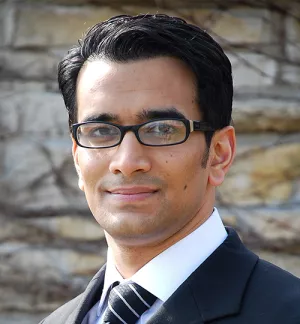SCOTS are right to be proud of the NHS: whether rich or poor, if you have something wrong with you, you can get it checked out and get world-class treatment without having to worry about being able to afford it.
Even if we grumble about it now and then, that reassurance is the main reason why most of us feel a certain loyalty to the health service.
The problem is that, if we are not careful, we might end up paying for that loyalty 15 or 20 years down the line. In the next decade or two, the NHS is going to face some severe challenges.
The first is more old people. British society is ageing, and Scotland is ageing faster than average. Not only is the post-war baby boom working its way through society, but the boomers are going to live longer than previous generation. By 2025, half of all Brits will be over 50. This will hit Scotland harder than average, as it will have a larger increase in the proportion of over-65s than the UK as a whole.
Between 2006 and 2031, the number of Scots over the age of 60 is projected to rise by 54 per cent to 1.72 million. That means that by mid-century the average Scot will need more healthcare per person than the NHS budgets for at the moment.
As things stand, the swelling ranks of pensioners are not well served by the current system. More than a million pensioners use publicly funded care at the moment. But it is difficult to plan for the long-term challenges of rising numbers of pensioners, because the budgets for care homes and other aspects of social care services are set each year for the next year. Planning year by year has worked fine for the past few decades, but in the next, we are going to be faced with slowly but steadily rising numbers of pensioners, which calls for longer-term planning to make sure there is sufficient care in place.
At the same time, the ratio of taxpayers to dependents (under-16s and pensioners) will also change. The changes to the NHS will have to be paid for by the taxpayer, of course, but there will be a smaller proportion of them to a higher proportion of dependants as the century goes on. By the 2030s, we may need to rethink some of the assumptions about what we can expect the NHS to do.
The second problem is less money. Across Britain, the NHS is likely to face a funding reduction of £8 billion to £10bn in real terms between 2011 and 2014, according to the NHS Confederation. It also says that, even after 2014, the NHS budget might carry on declining. It accepts that "the NHS will not survive the impending spending squeeze unchanged".
The third problem is a set of chronic public health issues. Last week, spending watchdog Audit Scotland warned that the country had bigger problems with drink and drug misuse than the British average, and that these could take their toll on the health service if things carry on as they are. And across the whole of the UK, obesity is not to be underestimated as a public health challenge. If you walked into a room containing a representative sample of the British population today, you would find one in four to be obese. But by 2050, that is due to rise to nine in ten.
Obesity alone is estimated to cost the NHS £4.2bn and rising.
As a country, we have not reacted to problems such as the demographic effects on healthcare in our usual entrepreneurial fashion. There is a shortage of solutions. Tellingly, earlier this year, the National Endowment for Science, Technology and the Arts offered a cool £50,000 to the best new policy solutions.
Perhaps the answer to these problems will involve accepting that the NHS should be what Nye Bevan set it up to be: a safety net to ensure nobody goes without healthcare, not the only provider of healthcare for everybody.
At the moment, public attitudes are not ready for this. In Scotland especially, taking private insurance is seen as some kind of right-wing act, a lack of faith in our national healthcare system. That must change. We should see the option of taking private insurance as a socially useful saving of public resources.
Schools may benefit from having classrooms which benefit from having pupils from a variety of backgrounds, but the same is not true of hospital wards.
One thing which the debate on healthcare in the United States has shown is that there is no model in the world that stands out as an ideal way to organise healthcare. Rather, there are pros and cons for each. And over the next few decades, each country's healthcare system is going to have to deal with the coming demographic challenges in its own way. Given these challenges, to insist that the NHS should remain the default system for the whole population is to ignore the deep changes that the population will undergo. Naysayers will object that a two-tier system is undesirable. But, realistically, that is what we have already, and allowing private providers to take some of the strain from the NHS will only improve the provision for the many in the long term.
I'm not a politician; I'm not required to pretend I have all the answers. But anyone managing a business with comparably rising costs, falling revenues and big long-term challenges should at least be able to take the first step and admit that things cannot carry on as they are.
The NHS will not be able to give more people with more ailments more care with less money. In 20 years' time, I fear we will look back at those who argue that we don't need to think outside the NHS-shaped box as victims of the conventional wisdom.
Azeem Ibrahim is research scholar in the International Security Programme at Kennedy School of Government at Harvard and a world fellow at Yale University, both in the United States.
Ibrahim, Azeem. “Time to Face Facts—the NHS Cannot Go On As It Is.” The Scotsman, December 17, 2009





